Does your rent keep going up? Tri-Cities workers say 40% rent surge is crushing them
The cost to rent an apartment in the Tri-Cities has surged since the onset of the pandemic in March 2020.
Rents are up nearly 40%, leading a group of local renters to say they’re being priced out of the market even as vacancy rates rise because developers are adding new units.
Apartmentlist.com said the median asking rent in Kennewick in August was up significantly from the early days of the pandemic. The trajectory is similar for Pasco, Richland and West Richland.
Steve Goheen, president of the Benton Franklin Rental Owners Association, said he wasn’t surprised to hear lease rates rose as much as 40%, calling it “believable.”
The Tri-City Herald recently invited local renters to share their stories of navigating the volatile market.
A diverse group responded, saying high rents relative to local wages are driving them to take second jobs, look for smaller apartments and are pushing them to the brink of homelessness..
They include a young single mother pursuing her dream of becoming a lawyer, a disabled Air Force veteran who married in July and a state worker with a stable job and good credit.
All have jobs and the veteran has VA benefits. All say they still come up short, spending far more than 30% of their income on housing.
The veteran and his wife were days away from losing their motel room when they sat down with the Herald. The future prosecutor works two jobs to keep her small home for two kids near downtown Kennewick.
The state worker is exploring if she can afford a manufactured home to get off the rent roller coaster but is stymied by student loan debt.
The state employee, who asked to be identified by her initials, S.J., pays more than half her income to rent an apartment in an older complex in central Kennewick.
“It squeezes out everything. I don’t know if there is anything we can do on rental control,” she said.
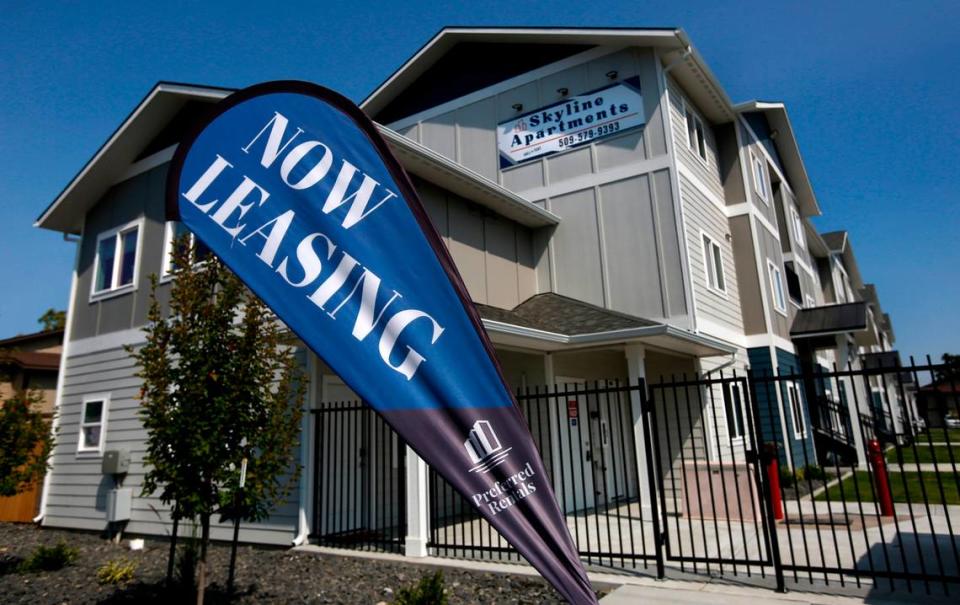
Advocates push for change
Tenant organizations have pushed to contain rent levels. Their progress is hampered by a law prohibiting rent control, passed by the 1981 state Legislature.
Rent stability remains a priority for the Washington Low Income Housing Alliance, said Rachael Myers, executive director.
The nonprofit advocates for more units to address the supply crunch.
It also pushes lawmakers to consider measures to prevent extreme rent increases and to cap yearly increases. It has supported bills to provide more notice and protection to tenants.
Four bills introduced during the 2023 session did not make it out of committee. Tacoma voters will consider a controversial proposal to protect renters in their city in November.
Rent increases are the top complaint fielded by the Tenants Union of Washington State, which advises tenants on their rights under Washington law.
“People are working two to three jobs just to survive,” said Violet Lavatai, executive director.
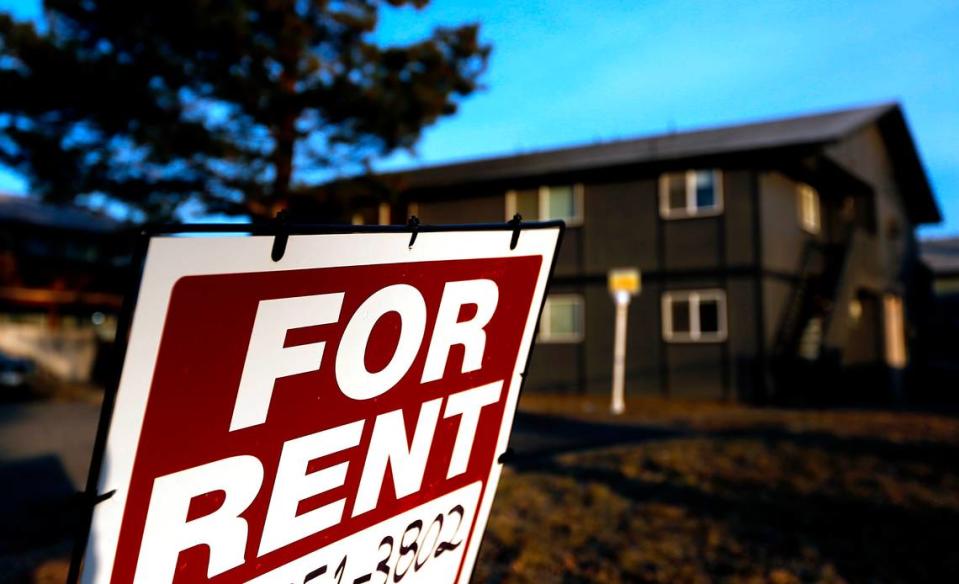
CoStar Group, a commercial real estate listing and research firm, offered Tri-City renters good news in a July report on the Tri-City apartment market.
Apartment construction is outpacing demand.
That’s driving up vacancy rates and driving down the leverage owners have to raise rents.
Developers added 535 apartment units over the prior 12 months, while demand meant just 246 were “absorbed.”
The average vacancy rate was 7.9%, ranging between 5% for lower cost apartments and 9.5% for higher priced ones.
Monthly rent averaged about $1,100 for lower-end apartments and $1,600 for higher-end ones, CoStar said.
Fearing the next renewal
S.J. is a long-time Kennewick resident with a college education and a job with the state of Washington. Her student loan is her only debt. Her credit is good. Her car is paid for.
She asked that her name not be used to avoid drawing attention from her employer or her landlord. She and her father moved into a two-bedroom apartment in 2017, paying about $800 a month.
Her father has since died, so she no longer has his income to help pay the rent. A $400 increased pushed it to nearly $1,400 this year, 73% more than when she first moved in. She had to add $50 to her security deposit as well.
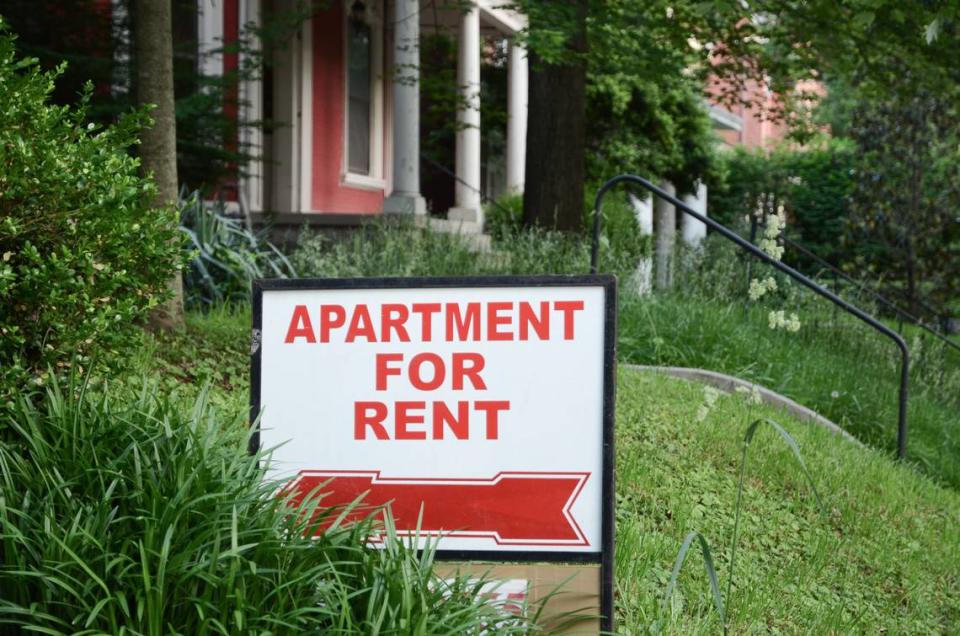
S.J. didn’t expect to live paycheck to paycheck. She enrolled in Columbia Basin College seeking an education and middle-class stability.
“It isn’t like that,” she said.
She is looking at one-bedroom units and is meeting with mortgage brokers about a home loan. She’s been told she’s ineligible because her debt to income ratio is too high.
She worries about the next lease renewal.
“I don’t want to renew next year. Who knows how much it’s going to be,” she said.
Veteran priced out
Becca and Danny Glasscock began living together when she was evicted from her Kennewick apartment and needed a place to go. A disabled health worker, she has since sued for wrongful eviction.
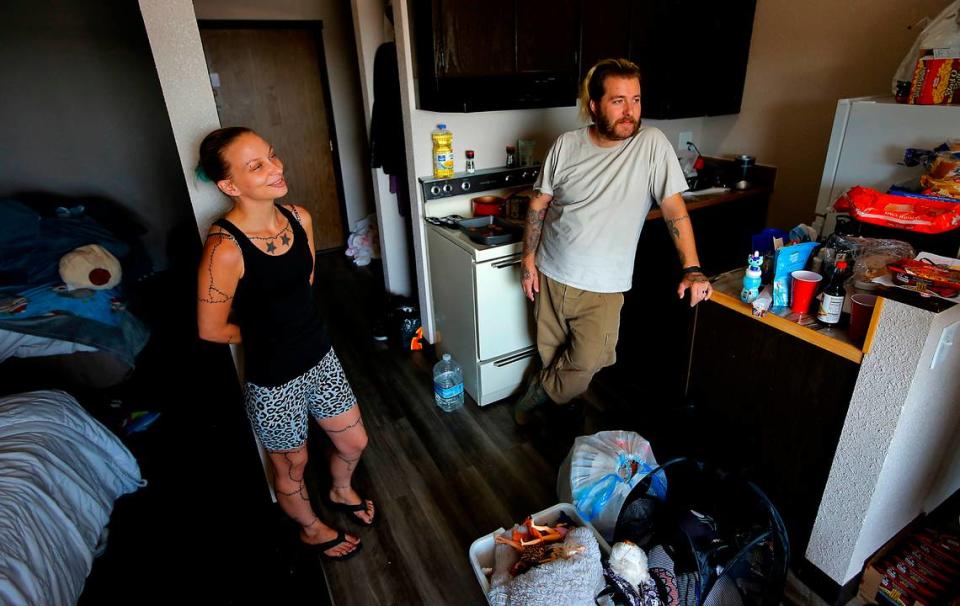
Danny, who spent time in Hawaii after serving four years in the Air Force, had moved into a Richland apartment after living with his family for several months.
He is 90% disabled with PTSD and receives benefits from the Veterans Affairs.
The couple has about $3,200 in household income each month from his benefits and his part-time job.
They moved out of their apartment in May after getting a 60-day notice that rent was rising above what they could pay.
They moved in with Becca’s ex, with whom she shares custody of three children, while also seeking assistance and applying for units at income-restricted properties.
“We’ve gone to every low-income complex,” Danny Glasscock said. “They all have year-plus waiting lists.”
In early July, they moved into a two-bed motel suite with kitchen in Kennewick. Vouchers paid for them to stay for 27 days.
They got married in early July too, in part to make sure they could stay together if they had to move into a shelter.
By late July, the vouchers ran out.
They sought an extension until Danny Glasscock’s August benefit payment arrived. The property manager needed the room for Tri-Cities Water Follies weekend.
As they packed belongings, Becca’s children sat on the floor and housekeeping cleaned nearby rooms.
They planned to return to her ex’s place, where Becca could watch the kids while their father works. If they can’t find housing, the Glasscocks will move to Spokane, where they have assurances they’ll get help with housing.

That’s a drastic move that would force Danny Glasscock to leave his job and Becca to be away from her children, who are already unsettled by the unstable situation.
“This has been so stressful on them. I can’t put in words how traumatic it has been.”
Math not adding up
Leslie Torres, 25, arrived at an interview armed with a worksheet covered with numbers.
She wanted to demonstrate how rents in the Tri-Cities exceed the incomes of ordinary people. Her two jobs provide $3,200 in monthly income.
Her worksheet described the two-bedroom unit she lived in before the pandemic, when she paid about $1,200 a month.
Today, the Kennewick complex is asking $1,780 for the unit. To be eligible, she would have to earn three times the rent, or $5,340 a month.
“That’s a nasty gap,” she said.
Torres and her two children — their father is not in the picture — lived with her mother for more than a year while she saved money.
She applied for apartments at several properties, but was rejected for because she didn’t earn enough. Her income was too high for income-based units reserved for low-income renters.
She is grateful for her small Kennewick house and the $1,200 a month rent and a private landlord who works with her. She’s determined to stay.
Her son dances through the small home, calling it “my house.”
“Hearing that, ‘My house,’ that’s what keeps me going,” Torres said.
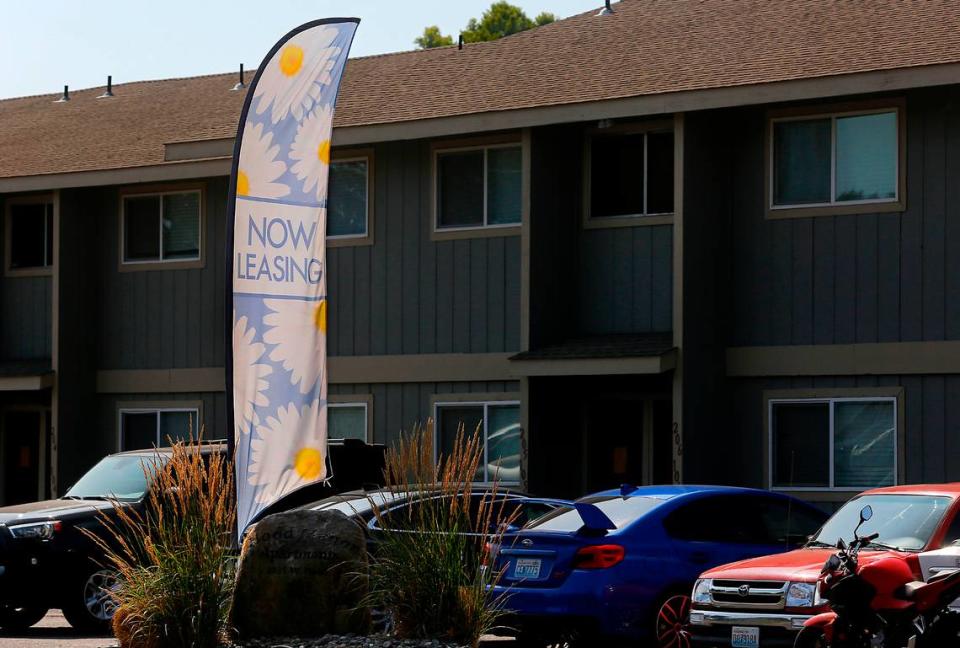
After paying rent, a car payment, utilities and child care, she said she has about $850 to pay for groceries, diapers, clothes, toiletries and, she joked, the strawberries her son eats by the flat.
She saves where she can and shops thrift stores. Her shoes cost $4, she said.
Scrimping doesn’t always work. Her power was disconnected after it turned hot, forcing her and the children to spend a week in her mother’s air conditioned home. Food in her refrigerator went bad.
Torres told her story because it’s not unique, and people need to know there’s a crisis, she said.
“I’m here to see if there’s something someone can do,” she said.
Sympathetic owner
Steve Goheen, the Rental Owners Association president, is sympathetic to renters who have faced significant increases.
The association provides education to landlords about legal issues. Local landlords tend to be small operators who work hard and earn little. Some even lose money and are banking on rising property values to deliver a profit when they sell.
Goheen said 10% of its members sold their properties during the pandemic, pushed out by an eviction moratorium that left them with nonpaying tenants.
”That’s how I got to be president,” Goheen said.
Goheen said rental owners face their own challenges. He said Washington’s Landlord Tenant regulations are too complex, driving out small owners who work with renters and replacing them with newcomers who raise rents to pay off higher mortgages.
“Landlords don’t like to lose tenants if they’re good tenants,” he said.
He advises landlords against sharp increases and limits his own rent hikes to 5%.
“They aren’t giving 10% raises,” he said.
Sign Up: Boom Town Tri-Cities
Stay up to date on Tri-Cities growth and development with our weekly business newsletter. Get the latest on restaurant and business openings and closings, plus the region’s top housing and employment news. Click here to sign up. In your inbox every Wednesday.


